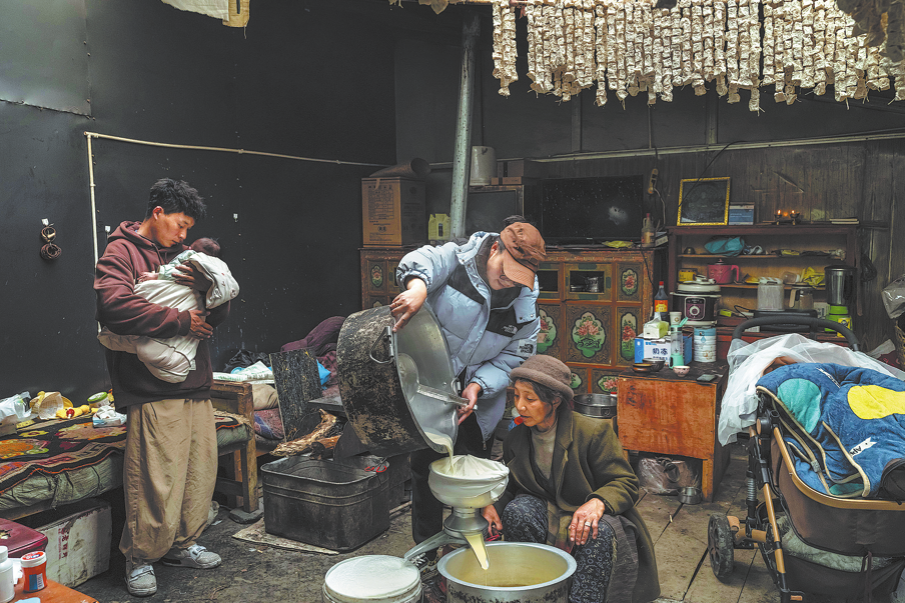Low-carbon lives promote green agenda


Governance, guidance
As the world's largest developing country, China has been an active participant in global climate governance. In 2009, the country announced a target to reduce carbon intensity-emissions per unit of GDP-by 40 to 45 percent of the 2005 level by 2020.
In 2019, a report released by the Ministry of Ecology and Environment showed a 45.8 percent fall in the country's carbon intensity by 2018 (from the 2005 level), meaning it had fulfilled its commitment ahead of schedule.
During the 18th National Congress of the Communist Party of China in 2012, ecological civilization-a concept that stresses the harmonious coexistence of humans and nature-was included in the country's overall development plan.
Since then, the green development philosophy has been implemented fully in the country's socioeconomic development.
The younger generation is making efforts to achieve the goal every day.
According to a survey conducted last year by news portal DT Finance and Cainiao, a leading logistics company, more than half of Chinese ages 18 to 30 preferred to purchase brands that promoted a green lifestyle.
Also, more than 70 percent of young people said they used products made from recyclable materials or had minimized the use of non-recyclable products by methods such as bringing their own cups to coffee shops.
There is also a booming trend among young people to use the digital yuan, which has been issued by the People's Bank of China as a low-carbon currency that supports both online and offline payments and does not require users to have a bank account.
According to the PBOC, by Dec 31, there had been more than 8 million digital yuan pilots, covering such topics as living expenses, catering services, transportation and government services.
Also, more than 260 million personal wallets had been opened.
Wu Xuan, 23, who works for an online games company in Beijing, opened his personal digital yuan wallet in October.
His move came after bike-sharing app Meituan-which he uses regularly-started distributing digital yuan red packets worth 10 yuan ($1.50) in September as a way of paying for the platform's services.
Since he started using the digital yuan, Wu has noticed that many platforms have adopted the payment service, and they have also used a range of promotions to encourage people to try this green initiative.
For example, he said subway passengers in Beijing can now use the digital currency to buy tickets and all-purpose cards, and top up these cards across the network.
"Sometimes, replenishing your account will result in fare discounts," he said.
"The environmental awareness of ordinary people is one of the key factors for the success of society in terms of a low-carbon environment. Such convenient and safe payment helps raise our awareness and participation in the reduction of carbon dioxide emissions."
























